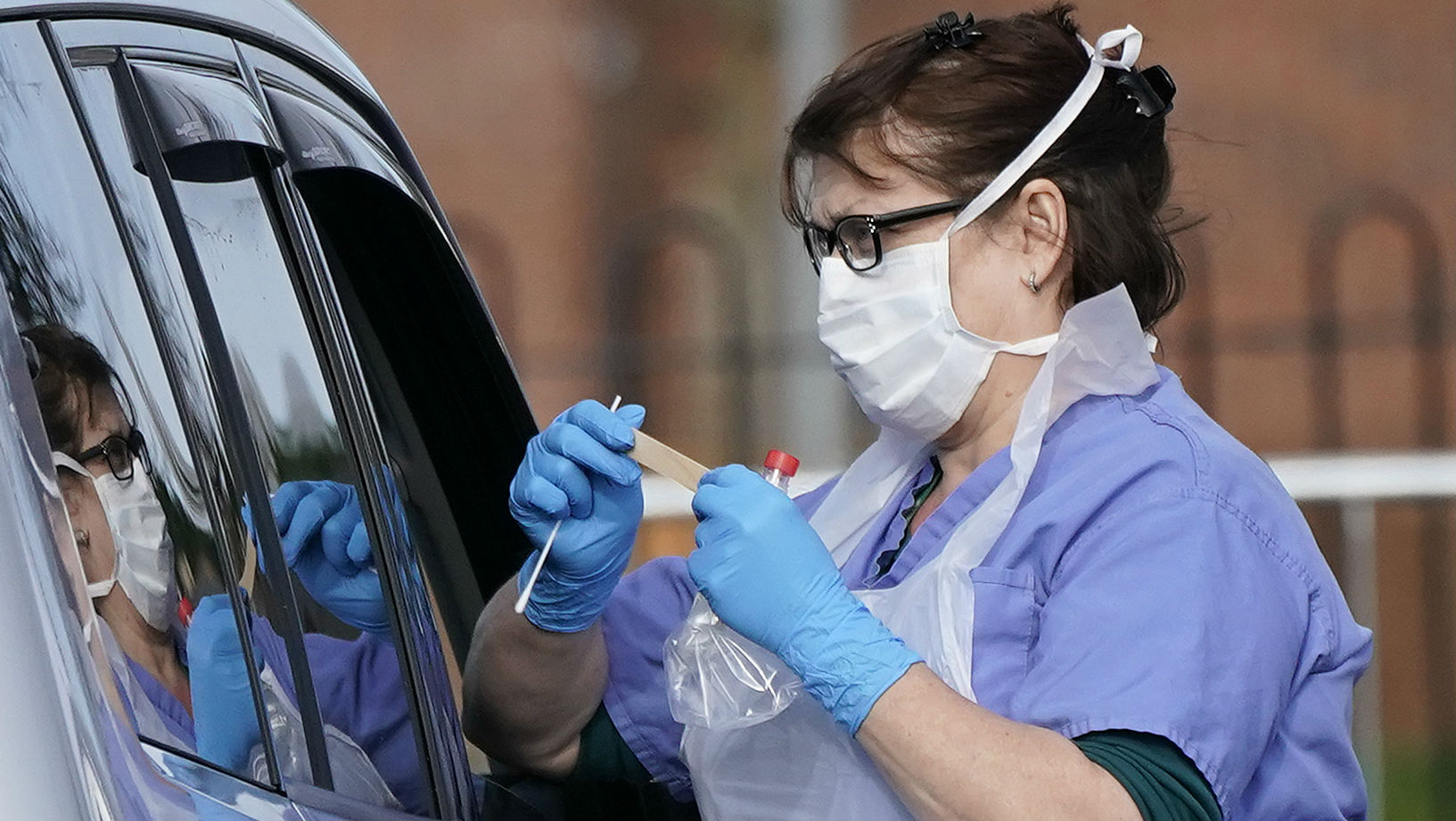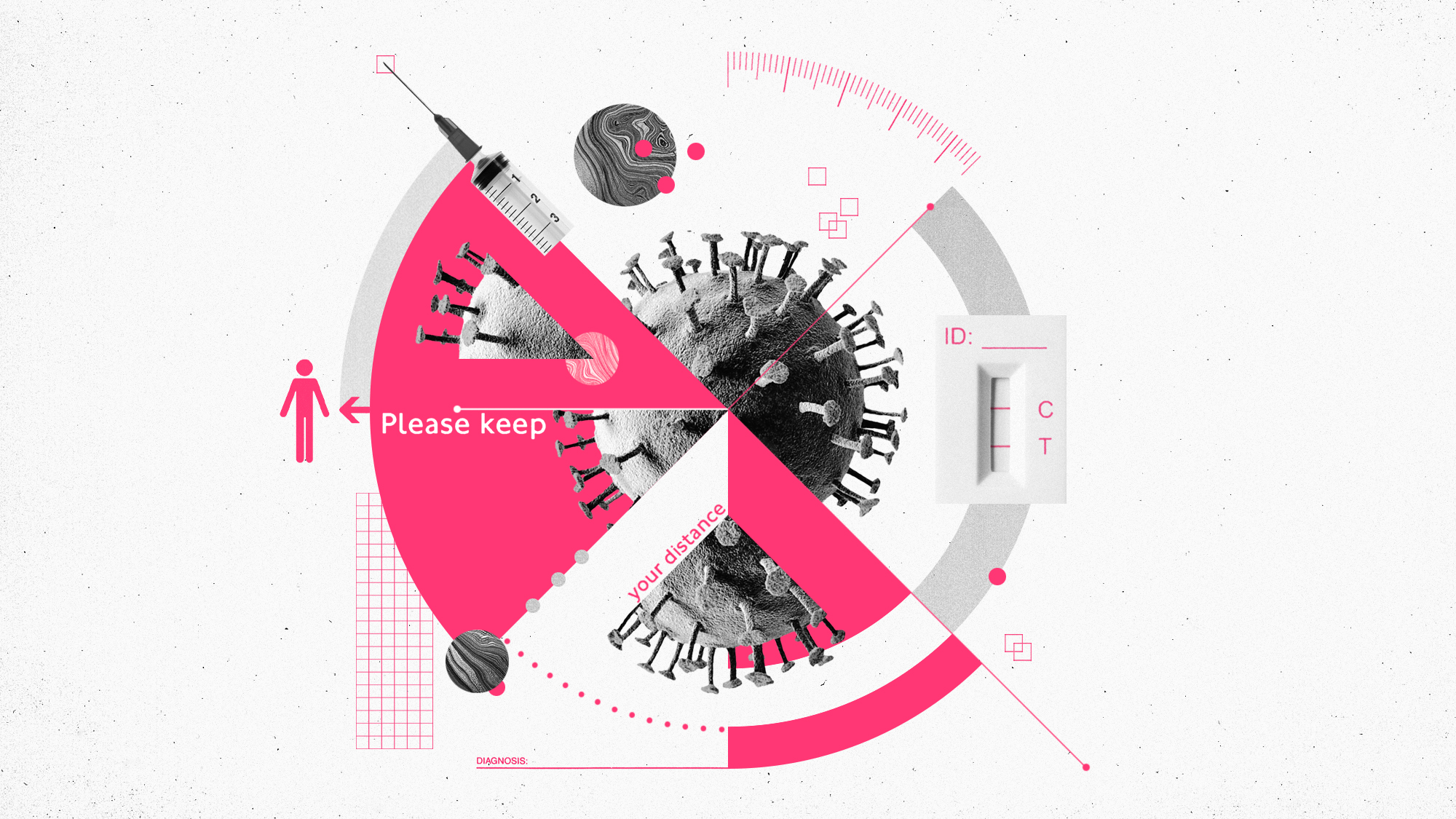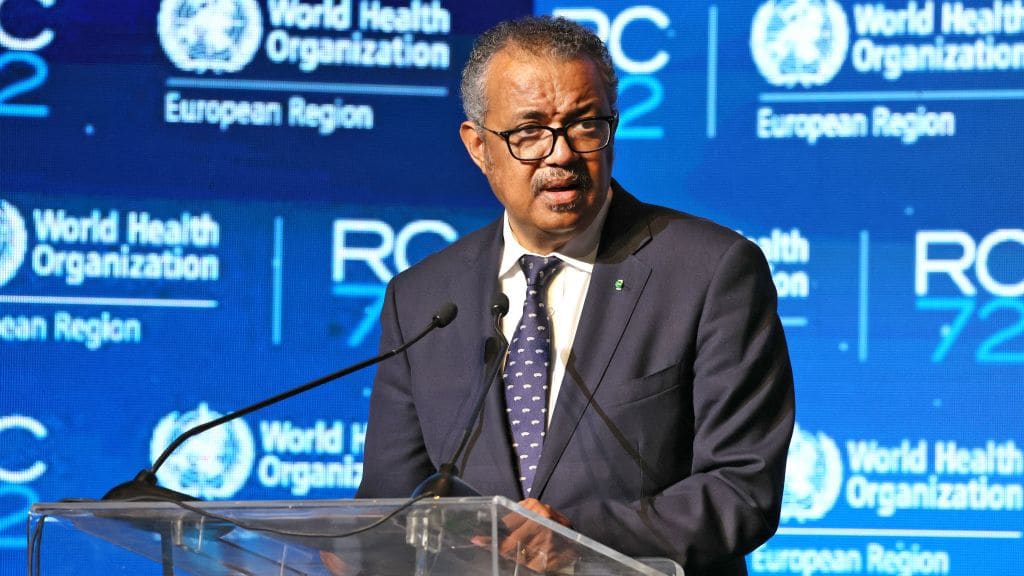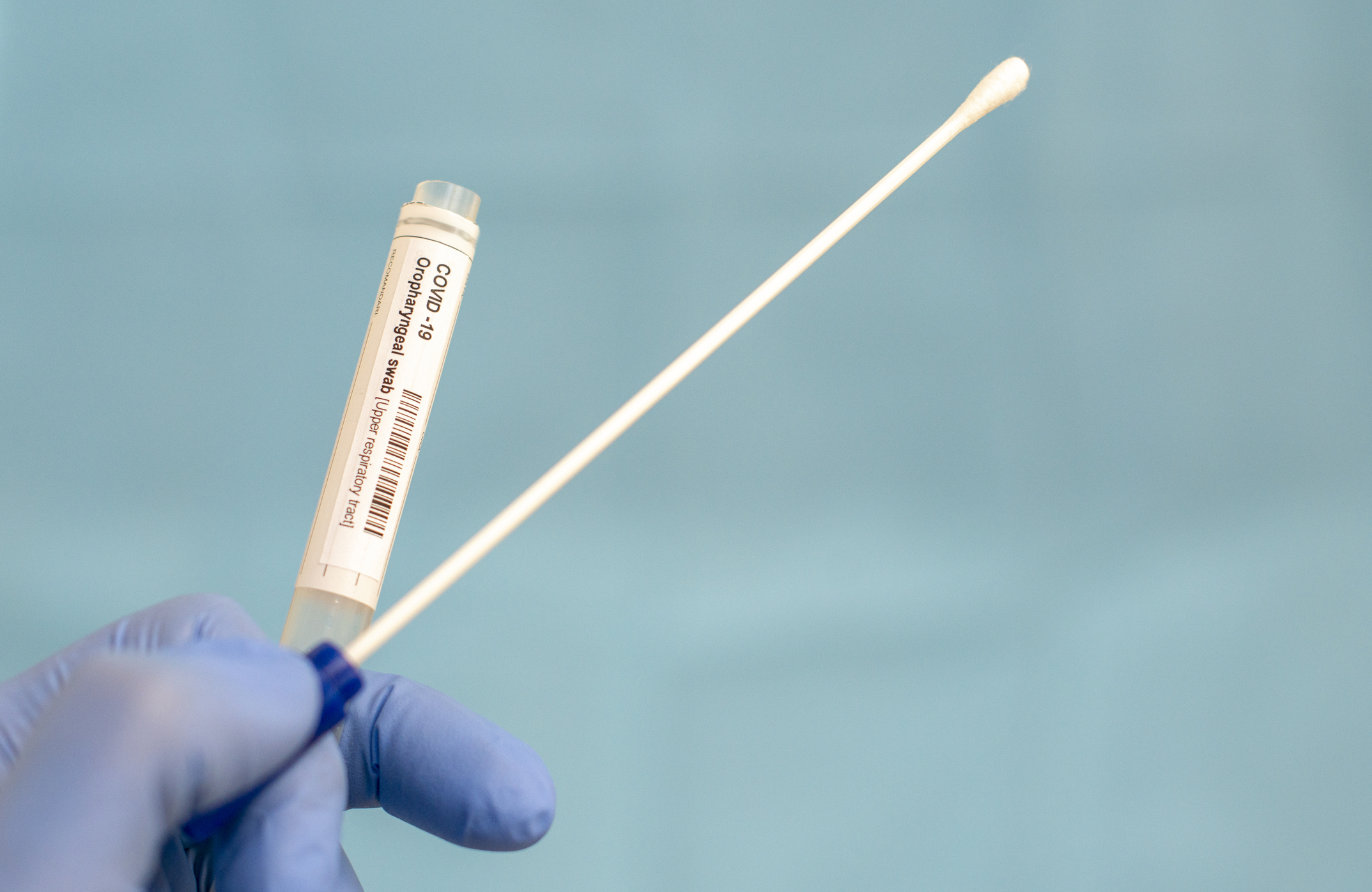Coronavirus testing: five things we still don’t know
Government facing growing pressure to explain why UK is lagging behind other developed nations

A free daily email with the biggest news stories of the day – and the best features from TheWeek.com
You are now subscribed
Your newsletter sign-up was successful
Opposition parties are calling for the UK government to explain how a new target to increase coronavirus testing tenfold within a month is to be achieved.
Health Secretary Matt Hancock has pledged that 100,000 tests will be carried out each day in England by the end of April - despite currently failing to reach the interim goal of 10,000 per day.
The question of how those numbers can be ramped up so quickly is just one of many surrounding the issue on coronavirus testing in the UK.
The Week
Escape your echo chamber. Get the facts behind the news, plus analysis from multiple perspectives.

Sign up for The Week's Free Newsletters
From our morning news briefing to a weekly Good News Newsletter, get the best of The Week delivered directly to your inbox.
From our morning news briefing to a weekly Good News Newsletter, get the best of The Week delivered directly to your inbox.
How will the government ramp up testing?
Labour has complained that the government’s testing plans are vague and short on detail. Shadow health secretary Jonathan Ashworth has called for clarification on how many of the planned 100,000 tests would be blood tests, and how testing will play a role in the lockdown “exit strategy”.
The UK is lagging behind many other countries including Germany, which is carrying out around 70,000 tests a day, “all for active cases of Covid-19”, says The Guardian.
Speaking at the government’s daily briefing on Thursday following a week in self-isolation after catching the virus, Hancock said that although the UK was starting from a “lower base”, the ultimate target of 250,000 tests a day - first announced on 18 March - was still valid.
A free daily email with the biggest news stories of the day – and the best features from TheWeek.com
But outgoing Labour leader Jeremy Corbyn said: “The fact that we are not yet even testing 10,000 people a day is very, very serious indeed. There are almost half a million [front-line] people working in the NHS and the care sector. Even they have not yet been tested. It is ludicrous. We have got to get on top of testing.”
What would testing mean for the NHS?
According to the health secretary, about 35,000 front-line NHS workers are currently off work because they have had coronavirus symptoms, or live with someone who has.
Hancock has promised that testing will be expanded from hospital patients and medics to more NHS staff, other key workers and finally more people in the community.
The plan is to employ tests for live cases of the virus and also tests for antibodies, which would show whether a person has already had the virus and now has antibodies against it in their blood, meaning they are likely to be resistant to reinfection.
If NHS workers test positive for antibodies, they will probably be considered immune and allowed back to work.
Paul Hunter, professor in medicine at the University of East Anglia, told The Guardian that antibody testing for front-line medical workers would also be crucial for allocating personal protective equipment in the safest way.
How will the government work with the private sector?
The government plans to team up with commercial partners including universities and private businesses to establish more swab testing.
Hancock yesterday said that “companies like Amazon and Boots” were helping to “build from scratch a network of new labs and testing sites across the country”.
The new strategy follows criticism of the government for failing to work with the private sector after the outbreak first began.
“The government is shifting from an Apple to an Android approach: it had preferred a central standardised product. Now it is asking companies to collaborate with open-source operating procedures,” says The Times.
The newspaper adds that Hancock has “effectively committed to setting up a new industry between ‘pharmaceutical giants’ and ‘small diagnostics companies’, but there is industry scepticism about if this is possible”.
Will the UK introduce ‘immunity certificates’?
Hancock says that the government is considering issuing a form of “immunity certificate” to people who undergo Covid-19 antibody testing and appear to be resistant to the virus, so that they can “get back, as much as possible, to normal life”.
But some critics “fear that this could lead to resentment in the population who have not had the virus, and that people might even deliberately try to get infected in order to obtain an immunity certificate”, says The Guardian, which adds that fraud could also be a problem.
Meanwhile, Eleanor Riley, professor of immunology and infectious disease at the University of Edinburgh, told the BBC that such certificates could give people a “sense of false security” about the threat posed by the virus.
Public Health England (PHE) official Professor John Newton, who is leading the government’s testing response, admits there is some uncertainty over people who have had Covid-19 can become infected again.
“The question of whether that immunity is enough to stop you being infected at all, or getting serious disease, is something that we need to discover as time goes on,” Newton said.
“I think we have to be optimistic that it will give some immunity, but we’re just not quite sure how much at the moment.”
–––––––––––––––––––––––––––––––For a round-up of the most important stories from around the world - and a concise, refreshing and balanced take on the week’s news agenda - try The Week magazine. Start your trial subscription today –––––––––––––––––––––––––––––––
Who is to blame for the current lack of testing?
In the face of widespread anger about the government’s handing of the crisis, Hancock has admitted that mistakes have been made.
“There will be criticisms made, and some of them will be justified,” he told Thursday’s press conference.
Some critics have also slated PHE for not placing enough emphasis sooner on the issue of testing. But the health agency “has rejected criticism that it had been trying to do all the testing itself and was too inflexible in which chemicals were allowed to be used, suggesting that it was the responsibility of ministers to find private capacity for more tests”, The Guardian reports.
Professor Paul Cosford, PHE emeritus medical director, has responded that the health body’s role is to “make sure our labs are doing what they need to do” in terms of testing hospital patients and NHS staff.
Meanwhile, Conservative backbenchers have expressed concern about the political consequences for the government.
According to the newspaper, a former supporter of Boris Johnson in last year’s leadership contest said: “I think the government could get blown away if people are still inside after Easter and there is no progress on testing.”
“The fact that there’s not mass testing now is inexcusable,” another unnamed Conservative MP complained.
“There are some in my party who are trying to blame PHE, but ultimately, it will be the politicians who get the blame if the economy collapses because we can’t test NHS workers,” a further Tory MP is quoted as saying.
“The death toll will become totemic. If we get thousands of people dying every day for several days, who knows where this will go. It is frightening, and the prime minister looks like he doesn’t know what to do.”
-
 Bad Bunny’s Super Bowl: A win for unity
Bad Bunny’s Super Bowl: A win for unityFeature The global superstar's halftime show was a celebration for everyone to enjoy
-
 Book reviews: ‘Bonfire of the Murdochs’ and ‘The Typewriter and the Guillotine’
Book reviews: ‘Bonfire of the Murdochs’ and ‘The Typewriter and the Guillotine’Feature New insights into the Murdoch family’s turmoil and a renowned journalist’s time in pre-World War II Paris
-
 Witkoff and Kushner tackle Ukraine, Iran in Geneva
Witkoff and Kushner tackle Ukraine, Iran in GenevaSpeed Read Steve Witkoff and Jared Kushner held negotiations aimed at securing a nuclear deal with Iran and an end to Russia’s war in Ukraine
-
 A potentially mutating bat virus has some scientists worried about the next pandemic
A potentially mutating bat virus has some scientists worried about the next pandemicUnder the Radar One subgroup of bat merbecovirus has scientists concerned
-
 Why some people remember dreams and others don't
Why some people remember dreams and others don'tUnder The Radar Age, attitude and weather all play a part in dream recall
-
 What does Covid look like in 2024?
What does Covid look like in 2024?Today's Big Question Disease experts are calling for closer monitoring as new variant fuels rise in infections
-
 Even New York City rats can get COVID, study finds
Even New York City rats can get COVID, study findsSpeed Read
-
 COVID 'lab leak' theory: Does the DOE's assessment hold water?
COVID 'lab leak' theory: Does the DOE's assessment hold water?Instant Opinion The sharpest opinions on the debate from around the web
-
 WHO chief says COVID's end is 'in sight'
WHO chief says COVID's end is 'in sight'Speed Read
-
 COVID elevates risk of neurological issues, study suggests
COVID elevates risk of neurological issues, study suggestsSpeed Read
-
 CDC relaxes COVID-19 guidelines on quarantines, social distancing
CDC relaxes COVID-19 guidelines on quarantines, social distancingSpeed Read